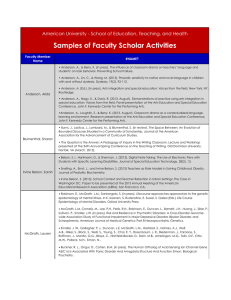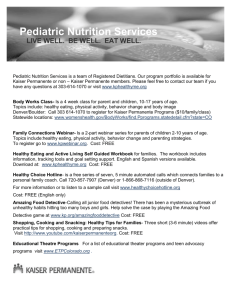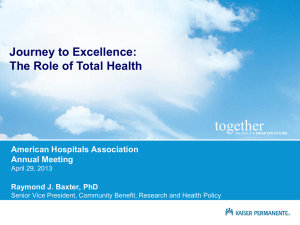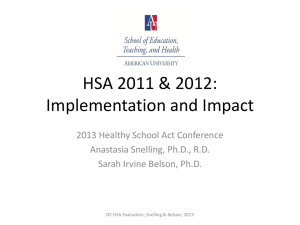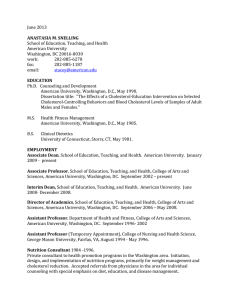American University’s School of Education, Teaching, and Health hosted the... dedicated to discussing the implementation and impact of the D.C....
advertisement
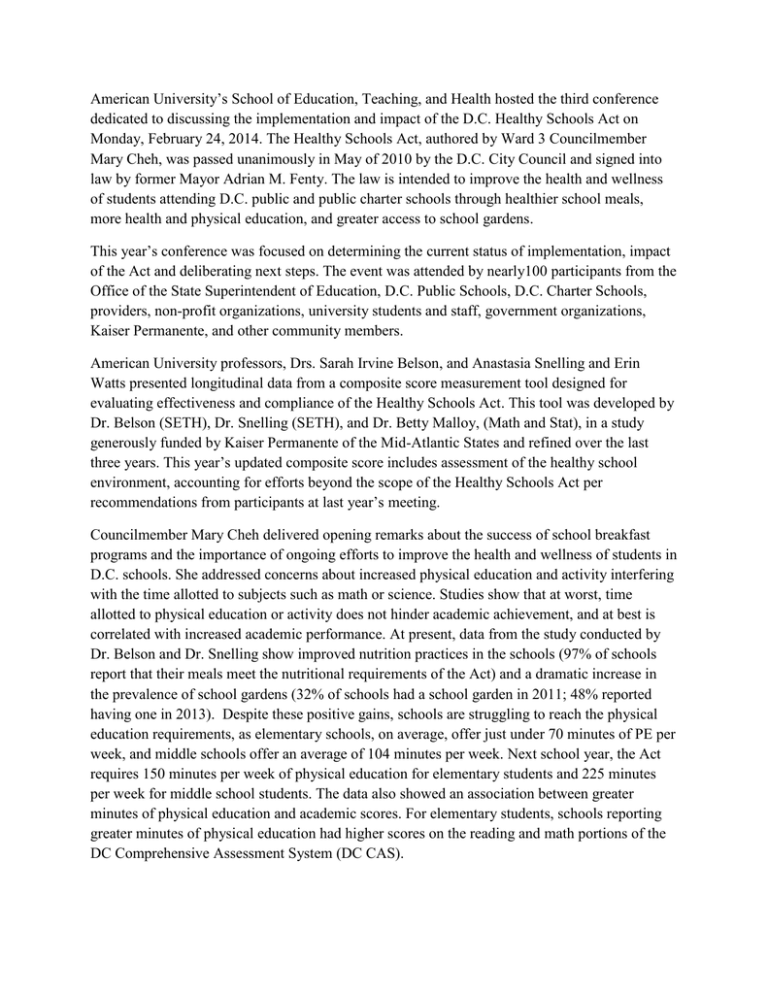
American University’s School of Education, Teaching, and Health hosted the third conference dedicated to discussing the implementation and impact of the D.C. Healthy Schools Act on Monday, February 24, 2014. The Healthy Schools Act, authored by Ward 3 Councilmember Mary Cheh, was passed unanimously in May of 2010 by the D.C. City Council and signed into law by former Mayor Adrian M. Fenty. The law is intended to improve the health and wellness of students attending D.C. public and public charter schools through healthier school meals, more health and physical education, and greater access to school gardens. This year’s conference was focused on determining the current status of implementation, impact of the Act and deliberating next steps. The event was attended by nearly100 participants from the Office of the State Superintendent of Education, D.C. Public Schools, D.C. Charter Schools, providers, non-profit organizations, university students and staff, government organizations, Kaiser Permanente, and other community members. American University professors, Drs. Sarah Irvine Belson, and Anastasia Snelling and Erin Watts presented longitudinal data from a composite score measurement tool designed for evaluating effectiveness and compliance of the Healthy Schools Act. This tool was developed by Dr. Belson (SETH), Dr. Snelling (SETH), and Dr. Betty Malloy, (Math and Stat), in a study generously funded by Kaiser Permanente of the Mid-Atlantic States and refined over the last three years. This year’s updated composite score includes assessment of the healthy school environment, accounting for efforts beyond the scope of the Healthy Schools Act per recommendations from participants at last year’s meeting. Councilmember Mary Cheh delivered opening remarks about the success of school breakfast programs and the importance of ongoing efforts to improve the health and wellness of students in D.C. schools. She addressed concerns about increased physical education and activity interfering with the time allotted to subjects such as math or science. Studies show that at worst, time allotted to physical education or activity does not hinder academic achievement, and at best is correlated with increased academic performance. At present, data from the study conducted by Dr. Belson and Dr. Snelling show improved nutrition practices in the schools (97% of schools report that their meals meet the nutritional requirements of the Act) and a dramatic increase in the prevalence of school gardens (32% of schools had a school garden in 2011; 48% reported having one in 2013). Despite these positive gains, schools are struggling to reach the physical education requirements, as elementary schools, on average, offer just under 70 minutes of PE per week, and middle schools offer an average of 104 minutes per week. Next school year, the Act requires 150 minutes per week of physical education for elementary students and 225 minutes per week for middle school students. The data also showed an association between greater minutes of physical education and academic scores. For elementary students, schools reporting greater minutes of physical education had higher scores on the reading and math portions of the DC Comprehensive Assessment System (DC CAS). Ideas for creative approaches to integrate physical activity in the school day and reach required levels of physical education and activity were shared by Institute of Medicine representative, Sarah Ziegenhorn. Suggestions include “walk to school” programs, programming before and after school, creating work stations in the classroom where students can move from one activity to another, and instituting physical activity breaks during the school day in between, or as part of, regular lessons. Members of the afternoon panel included representatives from the Healthy Youth in Schools Commission as well as the Office of the State Superintendent of Education. They expressed continued concern regarding competing interests in the school setting that make it challenging to address increased physical activity participation. Attendees continue to brainstorm and discuss ways to move closer to the standards set forth by the Healthy Schools Act in the 2014-2015 academic year, particularly with regards to physical education and activity. Washington, DC is a nationally-recognized leader for the passage of the Healthy Schools Act; however, the implementation and effects of the Act require continued evaluation as schools enter the fourth year of participation.
